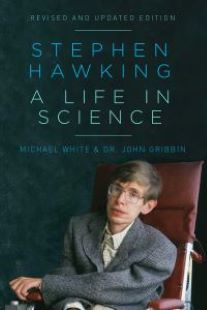Who Stephen Hawking
Stephen Hawking, fully Stephen William Hawking (born 8 January 1942, Oxford, Oxfordshire, England –
died 14 March, 2018, Cambridge, Cambridgeshire, Cambridgeshire) British theoretical physicist and black The Hall Explosion theory is based on the theory of relativity and quantum mechanics. He also tackled the space-time singularity. Hawking studied physics at University College, Oxford (BA, 1962) and Trinity Hall, Cambridge (PhD, 1966). He has been elected a Research Fellow at Gonville and Caius College, Cambridge. In the early 1960s.
Dr. Hawking was diagnosed with amyotrophic lateral sclerosis, an incurable degenerative neuromuscular disease. He continued to work despite progressive disability from the disease January 8, 1942 who Stephen hawking – who Stephen Hawking.
In early 1963, shortly before his 21st birthday, Dr. Hawking was diagnosed with a motor neuron disease
known as Lou Gehrig’s disease or amyotrophic lateral sclerosis (ALS) (opens in new tab). He was not
expected to live more than two years. His PhD seemed unlikely, but Dr. Hawking ignored the possibility.
He received his Ph.D. in 1966 (Dr. Hawking made his Ph.D. I have carved out a new path.
As his illness spread, Dr. Hawking had difficulty moving around and began using a wheelchair. Speech
became increasingly difficult, and in 1985 an emergency tracheostomy left him completely speechless. A
Cambridge-built speech generator, combined with his software program, acted as an electronic voice,
allowing Dr. Hawking to select words by moving his cheek muscles – who Stephen Hawking.
https://onlinestatusquotes.com/trust-in-a-relationship-how-to-rebuild-trust-in-relationship/
Shortly before his diagnosis, Dr. Hawking met Jane Wilde, and the two married in 1965. The couple had
three children of hers before separating. Hawking remarried in 1995 but divorced in 2006.
After graduating, Hawking remained at the University of Cambridge as a Research Fellow and later a
Professional Fellow.
In 1974 he joined the Royal Society, the worldwide community of scientists. In 1979
he was appointed Lucas Professor of Mathematics at Cambridge, the most famous academic chair in the
world (the second holder was Sir Isaac his Lord Newton, who was also a member of the Royal Society).
Throughout his career, Hawking studied the fundamental laws of the universe. He suggested that since
the universe had a beginning (the big bang), it would likely have an end. Collaborating with fellow
cosmologist Roger Penrose, he showed that Albert Einstein’s general theory of relativity states that
space and time began at the birth of the universe and ended with a black hole, linking Einstein’s theory
and quantum theory. Must be unified – who Stephen Hawking.
Applying the two theories together, Hawking also discovered that black holes are not completely dark,
but instead emit radiation. He predicted the emergence of black holes as small as protons after the Big
Bang, governed by both general relativity and quantum mechanics.
In 2014, Hawking revised his theory and even wrote that “black holes don’t exist.” His theory ruled out
the existence of an “event horizon” from which nothing escapes. Instead, he suggested that there would
be an “apparent horizon” that changes according to quantum changes inside the black hole. However,
that theory has proven controversial – who Stephen Hawking.
Hawking also suggested that the universe itself, like the earth, has no limits. The Earth is finite, but you
can travel around it (and through space) indefinitely without hitting a wall called “The End”.
Stephen Hawking has achieved remarkable personal and professional accomplishments in his
extraordinary life. Many are familiar with him as a person, and perhaps as a scientist who made amazing
discoveries about the universe, but not many fully understand what he did and how.
He earned widespread fame and respect through a series of contributions to the scientific community
that fundamentally redefined our understanding of many subjects while defying the possibility of
combating debilitating degenerative diseases – who Stephen Hawking.
Hawking’s competitive nature and inquisitive nature led him to make many friendly bets with other
physicists, eventually leading him to move from an intense research project fuelled by friendly
discussion to a tale about the universe. I have come to make discoveries who Stephen Hawking.
Throughout his life he sought to reconcile quantum physics and general relativity. These two different
kinds of physics of his include several widely accepted theories each, but rarely overlap in scope. He
called his incomplete hypothesis the “Theory of Everything” because he believed there was an interface
between particle physics and grand astrophysics that explained “everything” in the universe.


